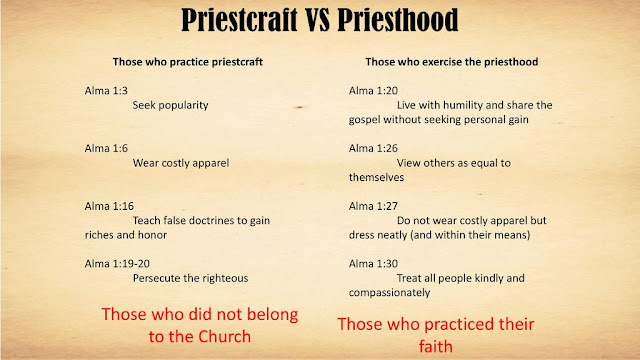 |
| It is more than saying I'm sorry; it is a mighty change of heart |
One quote I loved was this: Repentance isn't [Christ's] back-up plan in the event that we might fail: Repentance is His plan, knowing that we will.
I am a flawed human being. The natural woman in me is constantly at war with the spiritual woman God knows I can be. I become frustrated when I realize the many times I commit what are the same basic sins wearing different costumes. I am grateful that the Savior is more patient with me than I am with myself. I feel to say, like Nephi, O, wretched man that I am. . . It would be so easy to get discouraged enough to become cynical and stop trying. It is a constant, daily struggle to keep my head above water, so to speak, as physical trials and depression seek to pull me down to drown.
The Book of Mormon is one of the most encouraging examples of the power of true repentance. Alma, one of Noah's wicked priests, recognized truth when he heard it from the lips of the prophet, Abinadi. He searched the scriptures and prayed and experienced such a mighty change of heart that he not only repented of his own sins, but led others to repent of theirs.
Elder Robbins said that for repentance to be efficacious, it must be sincere. It must lead us to become closer to God in our thoughts, words, and actions. Said he, Repentance isn't going from failure to failure; it is growing from failure to failure. It doesn't matter if I slide back three steps if, in the overall scheme of things, I move forward four steps.
 |
| Alma turns over the judgement seat to Nephihah |
Alma the Younger is probably the quintessential example of sincere repentance. He became a new man and dedicated his life to serving the Lord and his neighbors. For eight years, he served as the chief judge in Zarahemla as well as being the prophet and high priest of the Church. He was exposed, probably on a daily basis, with the weaknesses and sins of his people. After fighting with antichrists such as Nehor and apostates such as Amlici - to say nothing of ubiquitous wars with the Lamanites, Alma realized that you can't save people from themselves by making tougher laws. Only through the gospel can people truly grow and society be healed. It was as if preaching - the pen - was mightier than the sword. He stepped down from being the head judged to devote his full time and effort to preaching the gospel.
I love the Book of Mormon. I sometimes feel burdened with the weight of the people's collective sins as they try to rationalize away those sins by claiming they are simply differences in political opinions and not sins at all. My heart is heavy as I recognize patterns of behavior that appear in my nation today. One recent example is occurring because of one man's heinous act; my countrymen are literally burning down our nation in protest. What does that solve? Nothing. Would that we could get beyond rationalization and revenge and find our way to love God and our neighbors. As Martin Luther King once said, Only light can drive out the darkness. Hate cannot drive out hate. Only love can drive out hate.
Why would Alma walk away from political power in order to preach Christ? I think he made the right choice.
© May 2020 Dr. Kathleen Rawlings
Buntin Danielson










































